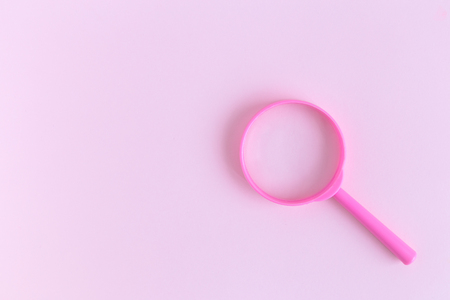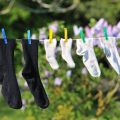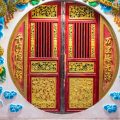Understanding the Symbolism of Mirrors in Feng Shui
Mirrors are more than just decorative pieces or practical tools for checking your outfit—they hold a special place in the world of Feng Shui. In this ancient Chinese philosophy, mirrors are seen as powerful objects that influence the flow of energy, or chi, throughout your home or office. To truly understand how to use mirrors effectively, it’s important to explore their symbolism and what they represent within Feng Shui.
The Role of Mirrors in Feng Shui Philosophy
Feng Shui is all about creating balance and harmony in your environment by managing how energy moves through spaces. Mirrors play a unique role because they reflect energy and light, which can either enhance or disrupt the overall feel of a room. Think of mirrors as tools that can “open up” cramped spaces, invite positive energy, and even redirect unwanted energy away from certain areas.
Common Symbolic Meanings of Mirrors
| Symbolism | Description | Everyday Example |
|---|---|---|
| Reflection | Mirrors double whatever they face—energy, objects, or even clutter. | A mirror across from a window brings more light into a dark room. |
| Expansion | Mirrors make small rooms appear bigger by creating an illusion of depth. | Using a mirror in a narrow hallway to make it feel less confined. |
| Cleansing | They can “push away” negative energy if placed thoughtfully. | Positioning a mirror to reflect a front door, believed to keep out bad vibes. |
| Amplification | Mirrors boost both positive and negative influences depending on placement. | A mirror facing a beautiful view enhances the effect; facing clutter doubles the mess. |
The Yin-Yang Balance
In Feng Shui, achieving harmony means balancing opposing forces—Yin (soft, calm) and Yang (active, vibrant). Mirrors can tip this balance depending on where you put them. For example, placing a mirror in a busy area can amplify activity (Yang), while using one in a quiet corner might bring more movement (Yang) to an otherwise still space (Yin).
Why Placement Matters
The influence of mirrors isn’t just about having them—it’s about where you put them and what they reflect. A well-placed mirror can brighten your living room or make your office feel more open and inviting. But if positioned poorly, it might bounce energy around too chaotically or draw attention to areas you’d rather hide. That’s why understanding their symbolism is the first step before diving into placement tips and best practices!
2. The Science Behind Reflections: Mirrors and Energy Dynamics
Understanding Mirrors: Light, Reflection, and Perception
Mirrors might seem like simple household objects, but they play a fascinating role in both science and Feng Shui. At their core, mirrors work by reflecting light. When light hits the surface of a mirror, it bounces back at the same angle it arrived. This process creates the clear images we see every day—whether that’s checking your outfit in the morning or making a room feel bigger and brighter.
How Mirrors Interact with Light and Energy
The science behind mirrors is rooted in physics. Here’s how it works:
| Scientific Principle | Description | Impact in Everyday Life |
|---|---|---|
| Reflection of Light | Mirrors bounce light back, making spaces look brighter. | Makes rooms appear larger and more open. |
| Direction of Energy (Qi) | In Feng Shui, mirrors are believed to redirect energy flow. | Can be used to shift the mood or function of a space. |
| Perception Enhancement | Mirrors can double what you see—light, views, or décor. | Adds visual interest and depth to any room. |
Feng Shui Interpretations: Mirrors as Energy Tools
In Feng Shui, mirrors are more than just decorative items—they’re powerful tools for managing “Qi” (pronounced “chee”), or life force energy. Here are some common ways mirrors are used in traditional Feng Shui practice:
- Bouncing Energy: Placing a mirror across from a window can bring more natural energy into the home by reflecting outdoor views and sunlight.
- Curing Problem Areas: If there’s a missing corner or an awkward layout, mirrors can help “complete” the space visually and energetically.
- Avoiding Negative Reflection: Mirrors should never reflect clutter or sharp angles, as this is thought to double negative energy.
Mainstream Western Design Concepts: Mirrors for Space and Light
Western interior design also embraces the power of mirrors, though often from a purely practical standpoint. Designers use mirrors to:
- Create Illusions of Space: Small apartments or narrow hallways feel larger when mirrors are strategically placed.
- Increase Light Levels: A well-placed mirror can reflect both natural and artificial light, making dark rooms feel much brighter.
- Add Style and Personality: From classic frames to modern shapes, mirrors serve as statement pieces on walls or mantels.
Comparing Feng Shui and Western Approaches
| Feng Shui Approach | Western Design Approach | |
|---|---|---|
| Main Goal | Balance energy (Qi) flow throughout the home. | Create visually appealing, functional spaces. |
| Mirror Placement Focus | Avoid reflecting negative features; enhance positive energy sources. | Enhance light; expand small areas; highlight décor elements. |
| Cultural Emphasis | Spiritual harmony and wellbeing. | Aesthetics and practicality. |
The Takeaway: Science Meets Tradition in Your Home
No matter which philosophy you follow, understanding how mirrors interact with light and energy can help you make smarter choices about where to place them. Whether you’re inviting more sunshine into your living room or balancing the flow of Qi in your entryway, mirrors offer both scientific benefits and time-honored wisdom for creating happier, healthier spaces.

3. Best Places to Hang Mirrors: Do’s and Don’ts in American Homes
Understanding Mirror Placement in Feng Shui
Mirrors are powerful tools in Feng Shui, able to shift energy, open up spaces, and create a sense of harmony. In modern American homes, using mirrors the right way can make your living environment feel brighter and more balanced. Here are practical guidelines on where and how to hang mirrors for the best results.
Entryways: Welcoming Positive Energy
Do:
- Place a mirror on a side wall near the entrance to reflect light and make the entryway feel more spacious.
- Use mirrors to help brighten darker foyers, making guests feel welcomed.
Don’t:
- Avoid hanging a mirror directly facing the front door; it can bounce good energy (chi) right back outside.
- Don’t use cracked or distorted mirrors, as they can disrupt positive vibes.
Bedrooms: Creating Restful Retreats
Do:
- If you want a mirror in your bedroom, place it where it doesn’t directly face your bed. This helps maintain restful energy and sleep quality.
- A small vanity mirror is fine, especially if it’s covered or closed when not in use.
Don’t:
- Avoid large mirrors that reflect your bed from any angle—they can cause restlessness and disturb sleep according to Feng Shui principles.
- No mirrors on the ceiling or opposite the bed for peaceful nights.
Dining Areas: Attracting Abundance
Do:
- Hang a mirror that reflects your dining table; this is believed to double abundance and bring prosperity into your home.
- Choose a clean, clear mirror without cracks or blemishes for positive energy flow.
Don’t:
- Avoid placing mirrors where they reflect clutter or mess—this amplifies negative energy.
- Never position a mirror so that it cuts off reflections of people sitting at the table, as this can symbolically “cut” relationships.
Living Rooms & Common Areas: Opening Up Space
- Use mirrors to reflect outdoor views like gardens or trees, inviting calming natural energy inside.
- If your living room feels cramped, hang a large mirror on one wall to visually expand the space.
- Avoid placing mirrors where they reflect sharp edges (like corners of furniture) or piles of clutter—these reflections can create unease or tension in shared spaces.
Quick Reference Table: Mirror Placement Do’s and Don’ts
| Area | Do’s | Don’ts |
|---|---|---|
| Entryway | Side wall placement; reflects light Brightens foyer |
Directly faces front door Cracked/distorted mirrors |
| Bedroom | Away from bed Vanity with cover |
Reflects bed Ceiling/bed-facing mirrors |
| Dining Room | Reflects dining table Clean, whole mirror |
Reflects clutter Cuts off people’s reflection |
| Living Room/Common Area | Reflects nature/outdoors Expands space visually |
Reflects sharp edges/clutter Creates awkward angles |
Mistakes to Avoid When Hanging Mirrors in Your Home
- Avoid using too many mirrors in one area—this can create chaotic energy instead of harmony.
- No mirrors facing toilets or bathroom doors; this may flush away good luck according to traditional Feng Shui beliefs.
- If you’re unsure about placement, start with smaller decorative mirrors before committing to larger pieces.
Following these simple guidelines will help you harness the benefits of both art and science when using mirrors for Feng Shui in your American home. Thoughtful placement not only adds style but also brings balance and positivity into everyday life.
4. Common Feng Shui Mirror Myths: Separating Fact from Fiction
When it comes to using mirrors in Feng Shui, many people in America have heard a mix of advice, stories, and warnings. Some of these are rooted in traditional Feng Shui, while others are simply myths that have grown over time. Let’s review some popular beliefs about mirrors in Feng Shui and clarify which ones hold true and which are just modern misconceptions.
Popular Mirror Myths vs. Traditional Beliefs
| Belief or Myth | Common Explanation | Feng Shui Tradition or Myth? |
|---|---|---|
| Mirrors double your wealth if placed in the dining room. | Some say mirrors reflecting the dining table multiply abundance. | Tradition supports this idea to an extent, as the dining area symbolizes wealth, but results may vary. |
| A mirror facing the bed causes bad luck or health problems. | It’s believed that mirrors reflecting you while you sleep can disturb energy. | This is a traditional belief—mirrors in bedrooms should be used carefully, especially if they reflect the bed directly. |
| Broken mirrors bring seven years of bad luck. | This idea comes more from Western superstition than Feng Shui practice. | Myth—while broken items should be removed for good energy flow, there’s no specific “seven years” rule in Feng Shui. |
| Mirrors should never face the front door. | The belief is that mirrors push away good energy entering your home. | Partially true—traditionally, a mirror facing the main entrance can reflect positive Chi out, so placement needs careful thought. |
| Placing a mirror opposite a window brings more light and good fortune inside. | The idea is to double natural light and outdoor views for better vibes. | This is supported by tradition; mirrors can invite more light and positive Chi when used thoughtfully. |
Common Misconceptions Explained
- All mirrors are equally beneficial: In truth, size, shape, frame color, and placement matter a lot. A random mirror won’t always bring good luck or harmony.
- Bigger mirrors always mean better energy: Oversized mirrors can sometimes overwhelm a space or cause too much activity. Balance is key in Feng Shui design.
- You need special Feng Shui mirrors (like Bagua mirrors) everywhere: Bagua mirrors are powerful tools but should only be used outdoors for specific situations, such as blocking negative external influences. They aren’t suitable for indoor decoration.
- Mirrors can “fix” any Feng Shui problem: While helpful, mirrors alone cannot solve deeper layout or energy issues at home. They work best as part of an overall Feng Shui plan.
How to Tell Fact from Fiction?
If you’re new to Feng Shui, it can feel tricky to know what advice to follow. Here are some simple tips:
- Check multiple sources: Traditional Feng Shui texts or certified practitioners offer trustworthy guidance compared to social media trends or word-of-mouth stories.
- Think about intention and comfort: If a mirror’s placement makes your home feel brighter and calmer without discomfort, it’s likely a good choice—even if some myths say otherwise.
- Avoid extremes: Overusing any element—including mirrors—can throw off your home’s balance. Moderation is always best in Feng Shui practice.
Your Next Step with Mirrors in Feng Shui
The key takeaway? Not every story about mirrors is rooted in real Feng Shui tradition. By understanding what’s fact and what’s fiction, you can use mirrors confidently and effectively to create positive energy in your American home.
5. Integrating Feng Shui Mirrors with American Interior Design
Blending Tradition and Modern Style
Mirrors have always been a beloved feature in American homes, offering both functional and decorative value. When combined with Feng Shui principles, mirrors can do even more by enhancing energy flow and promoting harmony in your living spaces. You dont need to sacrifice your personal style or popular American décor trends—heres how you can creatively use mirrors for both good vibes and great looks.
Creative Ideas for Using Mirrors in Your Home
1. Entryway Energy Boost
Place a mirror in the entryway to reflect light and make the space feel larger. In Feng Shui, this also helps invite positive energy into your home. However, avoid placing mirrors directly opposite the front door, as it may push energy right back out.
2. Amplifying Natural Light
Position mirrors across from windows to double natural sunlight in living rooms or dining areas. This not only brightens the room but also symbolizes abundance—a key Feng Shui concept that aligns well with American preferences for open, airy spaces.
3. Statement Walls with Purpose
Create a gallery wall using multiple small mirrors with different frames—think farmhouse chic or mid-century modern styles. This adds character and movement while allowing you to personalize your décor within Feng Shui guidelines.
4. Enhancing Workspaces
Add a mirror above your desk or in your home office to attract new opportunities and foster clarity. Just make sure it doesn’t reflect clutter, as that can lead to scattered energy and distraction.
Feng Shui Mirror Placement Tips for Popular Décor Styles
| Décor Style | Mirror Shape | Recommended Placement |
|---|---|---|
| Modern Farmhouse | Rectangular or vintage arched mirrors | Above console tables or fireplaces to create warmth and depth |
| Coastal Chic | Round or driftwood-framed mirrors | Across from windows to maximize natural light and views |
| Industrial Urban | Large metal-framed mirrors | Leaning against walls in lofts for an open, expansive feel |
| Traditional Classic | Ornate gold or wood-framed mirrors | In dining rooms to reflect beauty and abundance during gatherings |
Avoiding Common Pitfalls
- Avoid placing mirrors where they directly face beds—this can disturb restful sleep according to Feng Shui beliefs.
- Don’t hang mirrors facing cluttered areas; instead, use them to reflect art, greenery, or beautiful views for uplifting energy.
- If you love statement pieces, choose one large mirror rather than several small ones in bedrooms or quiet zones to maintain balance.
Your Harmonious Home Awaits
The artful placement of mirrors offers a unique way to blend Eastern wisdom with Western design sensibilities. By following these ideas, you can create spaces that look amazing, feel uplifting, and remain true to American interior trends—all while inviting positive energy into your home.


